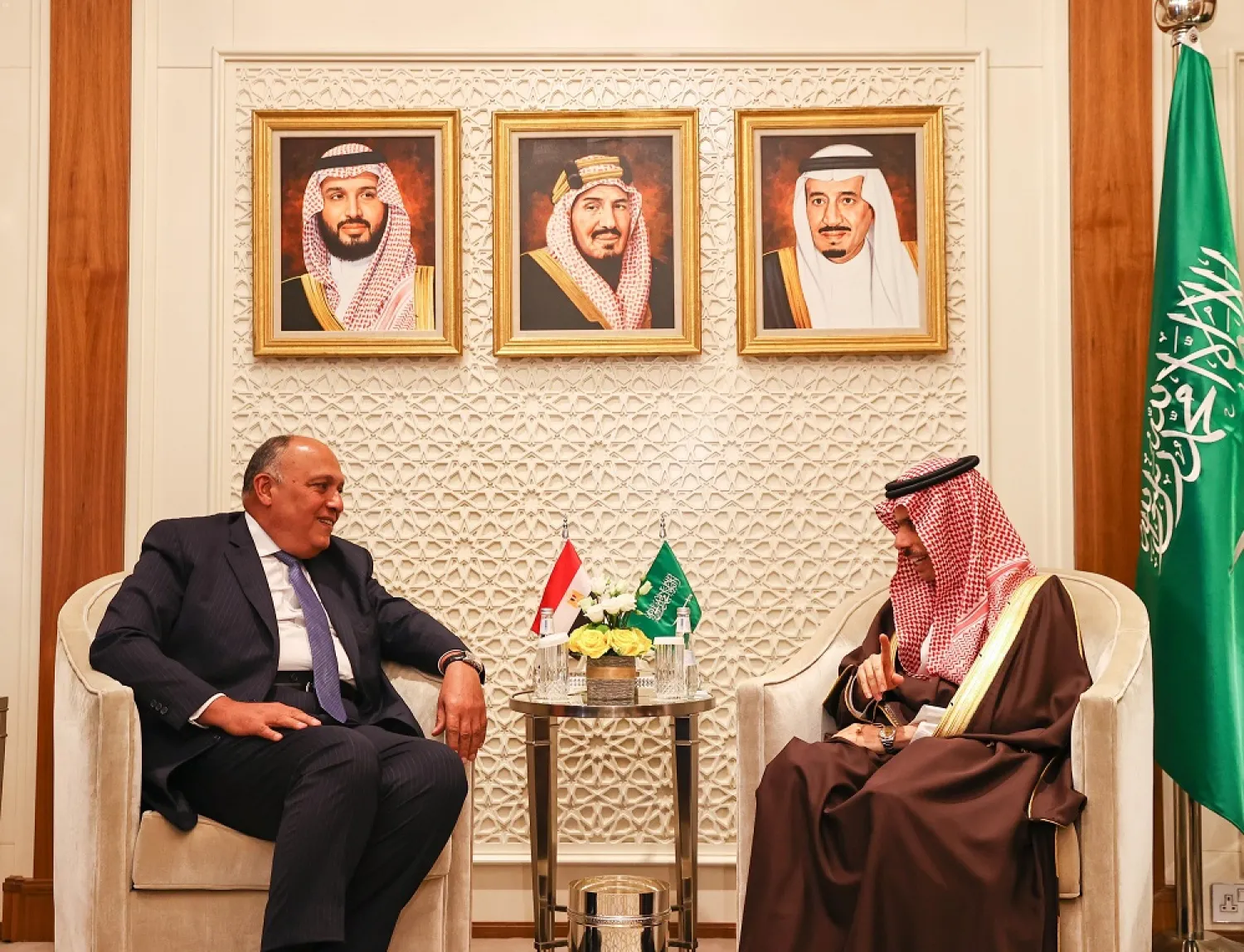Egyptian Foreign Minister Sameh Shoukry kicked off a tour of the Arab world to press his country’s case in the dispute with Ethiopia over the Nile dam.
He held talks in Riyadh on Monday with Saudi Foreign Minister Prince Faisal bin Farhan. He delivered to Custodian of the Two Holy Mosques King Salman bin Abdulaziz Cairo’s position on the dam and the latest developments in negotiations with Addis Ababa.
He hoped Saudi Arabia would continue its support to Egypt.
Prince Faisal, for his part, expressed Riyadh’s solidarity with Cairo.
Shoukry had traveled to Saudi Arabia from Kuwait where he delivered a message to Emir Sheikh Sabah al-Ahmed al-Jaber al-Sabah on the Nile dam dispute.
Egyptian foreign ministry spokesman Ahmed Hafez said Shoukry expressed Cairo’s appreciation for Kuwait’s position in backing it in the dispute.
Shoukry underscored the appreciation of the Egyptian leadership, government and people for Kuwait’s support to Egypt over the years, saying they are proud of the close relations that bind their countries.
Sheikh Sabah said Kuwait stands by Egypt in all affairs that safeguard its interests and rights, revealed Hafez.
Shoukry had kicked off his Arab tour by visiting Jordan and Iraq. He is expected to travel to the United Arab Emirates, Bahrain and Oman to garner more Arab support for Cairo.
The construction of the $4.6 billion Grand Ethiopian Renaissance Dam on the Blue Nile, which is about 71 percent complete and promises to provide much-needed electricity to Ethiopia’s more than 100 million people, has been controversial for years.
Ethiopia says the dam is needed to help pull many of its people out of poverty, while Egypt warns that if the dam is filled too rapidly in the coming years, then it will not get its fair share of river's water during the filling process.
Egyptian President Abdul Fattah al-Sisi had appealed to US President Donald Trump to help in negotiations over the dam.
Ethiopia has said it plans to start filling the dam in July this year, at the start of the rainy season, and that it would take up to seven years to fill the dam. Egypt has suggested that the dam should be filled more slowly over a period of 12 to 21 years.
The US and the World Bank are mediating the negotiations between Egypt, Ethiopia and Sudan, the countries through which the Nile River flows. Ethiopia did not attend the latest meeting on Feb. 26 in the US capital, citing ongoing consultations within the country.
Egypt’s foreign ministry said on February 29 it “regrets Ethiopia’s unjustifiable absence … at this critical stage in the negotiations” and added that “Egypt will use all available means to defend the interests of its people.”









